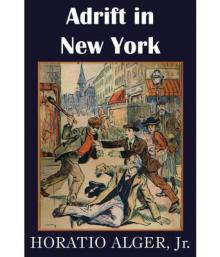 Adrift in New York: Tom and Florence Braving the World
Adrift in New York: Tom and Florence Braving the World Do and Dare — a Brave Boy's Fight for Fortune
Do and Dare — a Brave Boy's Fight for Fortune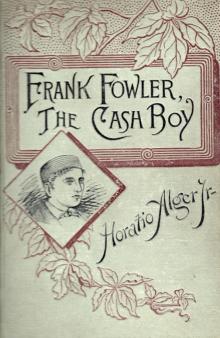 The Cash Boy
The Cash Boy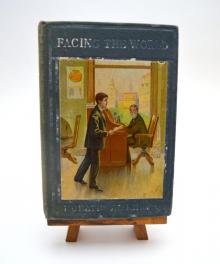 Facing the World
Facing the World The Young Explorer; Or, Claiming His Fortune
The Young Explorer; Or, Claiming His Fortune The Store Boy
The Store Boy Frank's Campaign; Or, The Farm and the Camp
Frank's Campaign; Or, The Farm and the Camp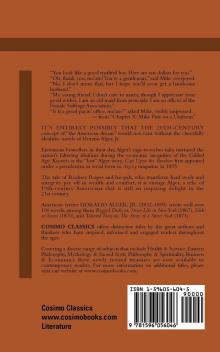 Cast Upon the Breakers
Cast Upon the Breakers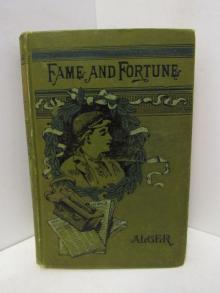 Fame and Fortune; or, The Progress of Richard Hunter
Fame and Fortune; or, The Progress of Richard Hunter The Errand Boy; Or, How Phil Brent Won Success
The Errand Boy; Or, How Phil Brent Won Success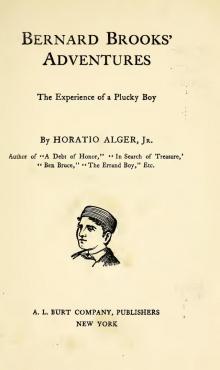 Bernard Brooks' Adventures: The Experience of a Plucky Boy
Bernard Brooks' Adventures: The Experience of a Plucky Boy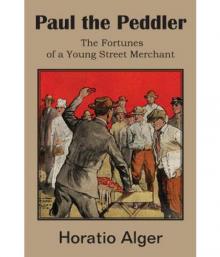 Paul the Peddler; Or, The Fortunes of a Young Street Merchant
Paul the Peddler; Or, The Fortunes of a Young Street Merchant Brave and Bold; Or, The Fortunes of Robert Rushton
Brave and Bold; Or, The Fortunes of Robert Rushton Try and Trust; Or, Abner Holden's Bound Boy
Try and Trust; Or, Abner Holden's Bound Boy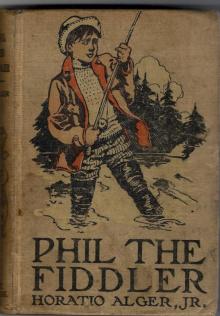 Phil, the Fiddler
Phil, the Fiddler In A New World; or, Among The Gold Fields Of Australia
In A New World; or, Among The Gold Fields Of Australia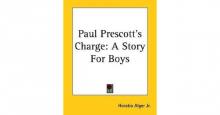 Paul Prescott's Charge
Paul Prescott's Charge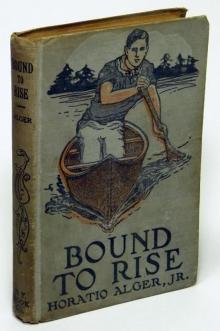 Joe's Luck; Or, Always Wide Awake
Joe's Luck; Or, Always Wide Awake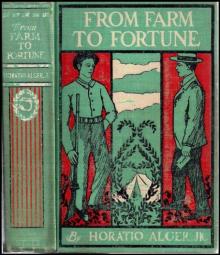 From Farm to Fortune; or, Nat Nason's Strange Experience
From Farm to Fortune; or, Nat Nason's Strange Experience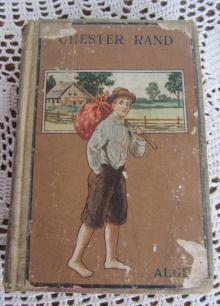 Chester Rand; or, The New Path to Fortune
Chester Rand; or, The New Path to Fortune Driven from Home; Or, Carl Crawford's Experience
Driven from Home; Or, Carl Crawford's Experience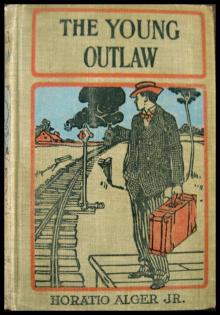 The Young Outlaw; or, Adrift in the Streets
The Young Outlaw; or, Adrift in the Streets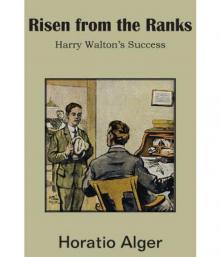 Risen from the Ranks; Or, Harry Walton's Success
Risen from the Ranks; Or, Harry Walton's Success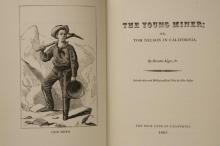 The Young Miner; Or, Tom Nelson in California
The Young Miner; Or, Tom Nelson in California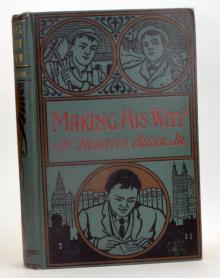 Making His Way; Or, Frank Courtney's Struggle Upward
Making His Way; Or, Frank Courtney's Struggle Upward Ben, the Luggage Boy; Or, Among the Wharves
Ben, the Luggage Boy; Or, Among the Wharves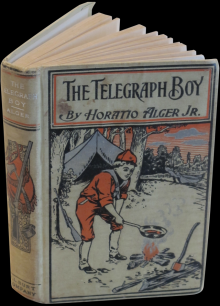 The Telegraph Boy
The Telegraph Boy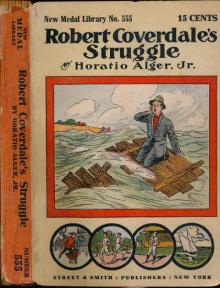 Robert Coverdale's Struggle; Or, on the Wave of Success
Robert Coverdale's Struggle; Or, on the Wave of Success Rufus and Rose; Or, The Fortunes of Rough and Ready
Rufus and Rose; Or, The Fortunes of Rough and Ready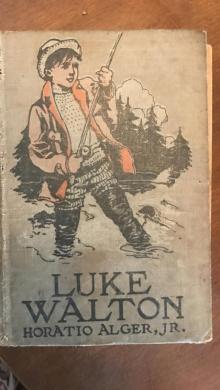 Luke Walton
Luke Walton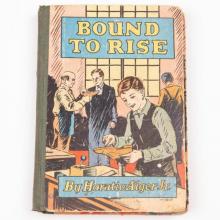 Mark Mason's Victory: The Trials and Triumphs of a Telegraph Boy
Mark Mason's Victory: The Trials and Triumphs of a Telegraph Boy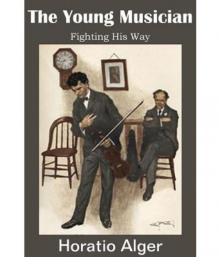 The Young Musician; Or, Fighting His Way
The Young Musician; Or, Fighting His Way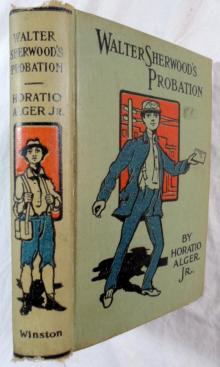 Walter Sherwood's Probation
Walter Sherwood's Probation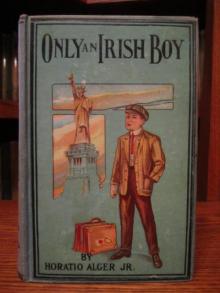 Only an Irish Boy; Or, Andy Burke's Fortunes
Only an Irish Boy; Or, Andy Burke's Fortunes Slow and Sure: The Story of Paul Hoffman the Young Street-Merchant
Slow and Sure: The Story of Paul Hoffman the Young Street-Merchant Herbert Carter's Legacy; Or, the Inventor's Son
Herbert Carter's Legacy; Or, the Inventor's Son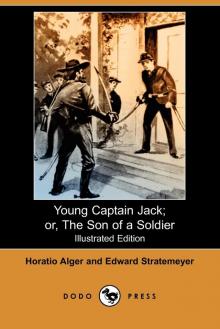 Young Captain Jack; Or, The Son of a Soldier
Young Captain Jack; Or, The Son of a Soldier Timothy Crump's Ward: A Story of American Life
Timothy Crump's Ward: A Story of American Life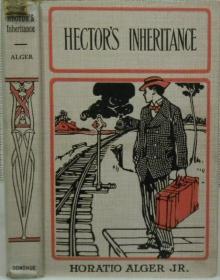 Hector's Inheritance, Or, the Boys of Smith Institute
Hector's Inheritance, Or, the Boys of Smith Institute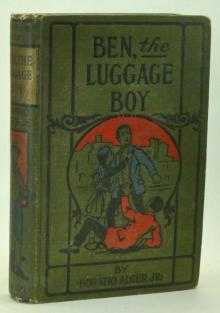 Ben's Nugget; Or, A Boy's Search For Fortune
Ben's Nugget; Or, A Boy's Search For Fortune Adrift in New York: Tom and Florence Braving the World
Adrift in New York: Tom and Florence Braving the World Do and Dare — a Brave Boy's Fight for Fortune
Do and Dare — a Brave Boy's Fight for Fortune The Cash Boy
The Cash Boy Facing the World
Facing the World The Young Explorer; Or, Claiming His Fortune
The Young Explorer; Or, Claiming His Fortune The Store Boy
The Store Boy Frank's Campaign; Or, The Farm and the Camp
Frank's Campaign; Or, The Farm and the Camp Cast Upon the Breakers
Cast Upon the Breakers Fame and Fortune; or, The Progress of Richard Hunter
Fame and Fortune; or, The Progress of Richard Hunter The Errand Boy; Or, How Phil Brent Won Success
The Errand Boy; Or, How Phil Brent Won Success Bernard Brooks' Adventures: The Experience of a Plucky Boy
Bernard Brooks' Adventures: The Experience of a Plucky Boy Paul the Peddler; Or, The Fortunes of a Young Street Merchant
Paul the Peddler; Or, The Fortunes of a Young Street Merchant Brave and Bold; Or, The Fortunes of Robert Rushton
Brave and Bold; Or, The Fortunes of Robert Rushton Try and Trust; Or, Abner Holden's Bound Boy
Try and Trust; Or, Abner Holden's Bound Boy Phil, the Fiddler
Phil, the Fiddler In A New World; or, Among The Gold Fields Of Australia
In A New World; or, Among The Gold Fields Of Australia Paul Prescott's Charge
Paul Prescott's Charge Joe's Luck; Or, Always Wide Awake
Joe's Luck; Or, Always Wide Awake From Farm to Fortune; or, Nat Nason's Strange Experience
From Farm to Fortune; or, Nat Nason's Strange Experience Chester Rand; or, The New Path to Fortune
Chester Rand; or, The New Path to Fortune Driven from Home; Or, Carl Crawford's Experience
Driven from Home; Or, Carl Crawford's Experience The Young Outlaw; or, Adrift in the Streets
The Young Outlaw; or, Adrift in the Streets Risen from the Ranks; Or, Harry Walton's Success
Risen from the Ranks; Or, Harry Walton's Success The Young Miner; Or, Tom Nelson in California
The Young Miner; Or, Tom Nelson in California Making His Way; Or, Frank Courtney's Struggle Upward
Making His Way; Or, Frank Courtney's Struggle Upward Ben, the Luggage Boy; Or, Among the Wharves
Ben, the Luggage Boy; Or, Among the Wharves The Telegraph Boy
The Telegraph Boy Robert Coverdale's Struggle; Or, on the Wave of Success
Robert Coverdale's Struggle; Or, on the Wave of Success Rufus and Rose; Or, The Fortunes of Rough and Ready
Rufus and Rose; Or, The Fortunes of Rough and Ready Luke Walton
Luke Walton Mark Mason's Victory: The Trials and Triumphs of a Telegraph Boy
Mark Mason's Victory: The Trials and Triumphs of a Telegraph Boy The Young Musician; Or, Fighting His Way
The Young Musician; Or, Fighting His Way Walter Sherwood's Probation
Walter Sherwood's Probation Only an Irish Boy; Or, Andy Burke's Fortunes
Only an Irish Boy; Or, Andy Burke's Fortunes Slow and Sure: The Story of Paul Hoffman the Young Street-Merchant
Slow and Sure: The Story of Paul Hoffman the Young Street-Merchant Herbert Carter's Legacy; Or, the Inventor's Son
Herbert Carter's Legacy; Or, the Inventor's Son Young Captain Jack; Or, The Son of a Soldier
Young Captain Jack; Or, The Son of a Soldier Timothy Crump's Ward: A Story of American Life
Timothy Crump's Ward: A Story of American Life Hector's Inheritance, Or, the Boys of Smith Institute
Hector's Inheritance, Or, the Boys of Smith Institute Ben's Nugget; Or, A Boy's Search For Fortune
Ben's Nugget; Or, A Boy's Search For Fortune